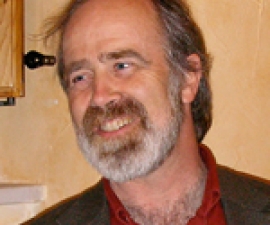

Research Expertise and Interest
neuroscience, anthropology, cognitive neuroscience, evolutionary biology, neurobiology, semiotics, primates, linguistic theory
Research Description
Professor Deacon's research has combined human evolutionary biology and neuroscience, with the aim of investigating the evolution of human cognition. His work extends from laboratory-based cellular-molecular neurobiology to the study of semiotic processes underlying animal and human communication, especially language. Many of these interests are explored in his 1997 book, The Symbolic Species: The Coevolution of Language and the Brain.
His neurobiological research is focused on determining the nature of the human divergence from typical primate brain anatomy, the cellular-molecular mechanisms producing this difference, and the correlations between these anatomical differences and special human cognitive abilities, particularly language. In pursuit of these questions he has used a variety of laboratory approaches including the tracing of axonal connections, quantitative analysis of regions of different species brains, and cross-species fetal neural transplantation. The goal is to identify elements of the developmental genetic mechanisms that distinguish human brains from other ape brains, to aid the study of the cognitive consequences of human brain evolution.
His theoretical interests include the study of evolution-like processes at many levels, including their role in embryonic development, neural signal processing, language change, and social processes, and how these different processes interact and depend on each other. Currently, his theoretical interests have focused on the problem of explaining emergent phenomena, such as characterize such apparently unprecedented transitions as the origin of life, the evolution of language, and the generation of conscious experience by brains. This is fueled by a career-long interest in the ideas of the late 19th-century American philosopher, Charles Sanders Peirce and his theory of semiosis. His new book, Incomplete Nature: How Mind Emerged from Matter, explores the relationship between thermodynamic, self-organizing, evolutionary and semiotic processes and provides a new technical conception of information that explains both its representational and normative properties.